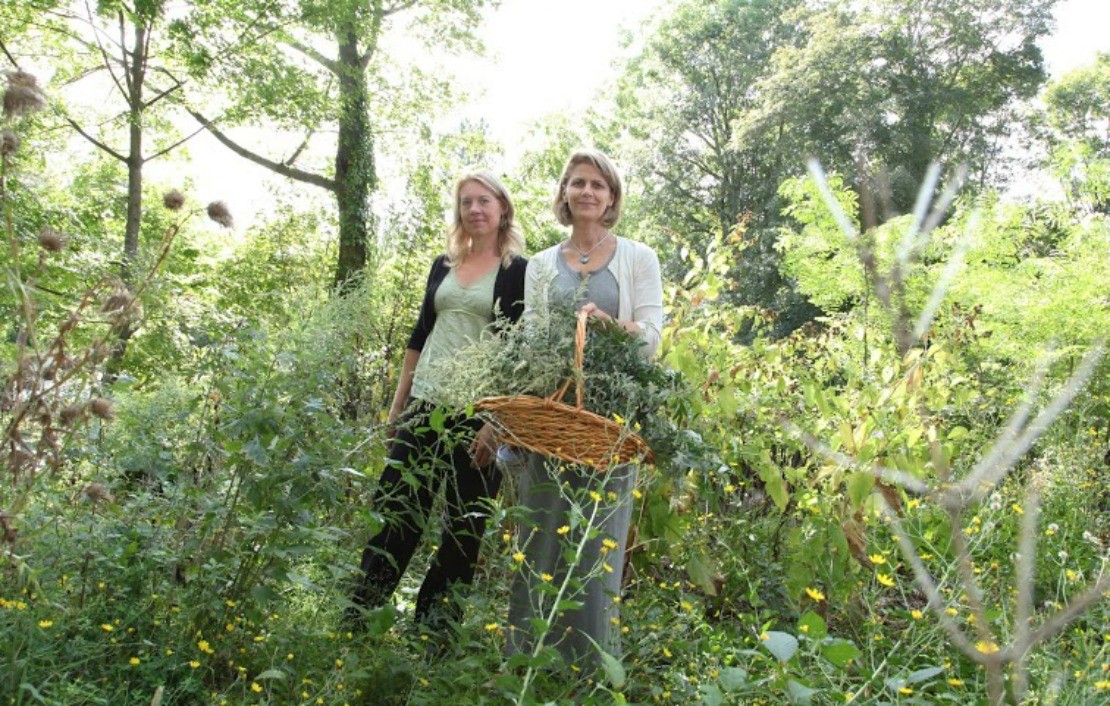HERBALIST OR HERBOLOGIST JOB OPPORTUNITIES
What can I do as an herbalist, or herbologist?
So you are looking to study herbalism (also called herbology) or perhaps you already have a certificate in herbalism, but now what?
Studying herbalism, as our Herbal Academy founder Marlene Adelmann described, “…is like a gift inside a gift.” It is our responsibility and blessing to take care of the natural world of which we are a part. Many individuals study herbalism for the pure enjoyment of learning how to use these valuable green plants some call weeds. Others study so they can learn how to take care of themselves and their families. Some individuals begin their studies of herbalism in order to start their own businesses, with the intention of selling herbs and body-care products to their communities. And then there are those who delve into the art and science of herbal therapeutics to practice clinical herbalism.
Throughout this page, we will highlight the many ways to use your herbal training in the real world. The options are many!

Herbalist Careers
Herbalists, in some way or another, tend to be entrepreneurs in spirit. It makes sense! Why are many drawn to this uncommon field of herbal medicine and plant study? Because there is something attractive and grounding about expanding our understanding of and connection with the natural world, let alone its opportunity for supporting our wellness. This is a field of study that has a long history in cultures around the world, with continued application in the modern world, and the career options are wide ranging and ever expanding.
Clinical herbalism
Working with herbs and clients in an one-on-one setting is called clinical herbalism. Herbalists who practice clinical herbalism may draw on their education and experience in order to help their clients find beneficial herbs. A salary for a practicing herbalist may range from $50-300 per hour, depending on background and education.
Be cautious of herbalist training programs that advertise accredited certification and herbalist degrees because at this point in the United States there is no legal recognition of these titles. You can learn more about accredited herbalism here.
Someone looking to enter this career can either open an individual practice or partner with an already established practitioner or physician to provide holistic services to clients (in the United States, herbalists are not legally allowed to practice medicine with patients, but can educate clients under the First Amendment right to free speech). Either way, it is recommended that practicing herbalists have at least two years of herbalism or herbology education (if not more), with advanced training in clinical herbalism and hands-on practice under the guidance of a mentor. Acquiring a degree in a related field of health is also beneficial. If you are interested in becoming a clinical herbalist, learn more about our Professional Herbalist and Clinical Herbalist Path Packages for professional herbalists.
Teaching and public speaking
It is natural to step into the world of education after studying herbalism. After all, herbalists hold the secrets of the ancient art of creating herbal preparations that harness the wonderfully supportive benefits of plants in support of health. There is a need for herbalists to step up to the platform to teach others the practice of herbalism. Opportunities to teach and public speak are popping up across the country and across the globe, and established herbal groups, schools, and other organizations seek guest speakers and educators who can educate their members on herbalism and plants.
Compensation for teaching at herbal schools, membership groups, and other events vary. Herbalists can either set their pay rate or work with organizations based on their budgets.
Blogging and freelance writing
Herbalists hold within them a wealth of information that can be shared with beginner herbalists or those interested in incorporating herbs into their daily life. There are many successful bloggers who make an income through paid sponsorships, advertising, ebooks, selling products, and affiliates (you can find our affiliate program here).
With certain publications, freelance writing also offers additional income for herbalist entrepreneurs. The Herbal Academy blog is one of the trusted herbal publications online that compensates for contributing articles, and there are other freelance writing opportunities both online and offline.
Herbalists who pursue this career should also have computer skills or find partners to support them in this area.

Selling herbal products
There are so many products herbalists learn to make through their studies: salves and balms, herbal capsules, tinctures and teas, spice blends, and much, much more! Herbalists will often venture into their own businesses after studying herbs. Products may be sold through a number of avenues: websites, blogs, Etsy, farmers markets, fairs, and other events. Herbalists have opportunities to establish both B2B and B2C organizations, selling products via retail and/or wholesale.
We share insights and experience from successful herbal business owners in our Business Herbal Course, and you can find a list of several small and large herbal businesses on our Business Herbal Course page to get you inspired (many are our Herbal Academy students!). These businesses, ranging in success and size, were all started by herbalists! These leaders can be an inspiration to beginners interested in making a career out of selling products.
Sales and consulting
Consulting is also an option for educated herbalists. NYR Organic has been a leader in independent product consultations, and there are a number of other businesses with similar opportunities. Research compensation plans to discover if these businesses are a fit for you.
Holistic job opportunities
A growing number of herb shops, apothecaries, wellness clinics, and herb farms are looking for team members to join their staff. Job openings in administration to nutrition consultation to business management are all realistic opportunities for the studied herbalist. Having training in herbalism offers a competitive edge and the specialization often desired by holistic organizations. The Herbal Academy often has job postings, providing remote work opportunities.
Growing herbs
Learning about herbs, identification, and how to grow them can offer a unique specialty in agriculture. Growing herbs for wholesale, a farmers market, or an herbal shop are all opportunities for the herbologist with interest as an herbal grower. CSAs and urban gardening for restaurants, schools, and hospitals are also areas to pursue with a certification in herbalism.
Further education opportunities
Herbalism expands your knowledge and capabilities and may make your skills even more marketable. Perhaps you already have a career, but would like to specialize in a niche market. Continuing education in herbalism is a clever way to do just that while also following your passion.
Below is a basic list of wellness-oriented fields of study (or college majors) that may benefit from a knowledge of herbalism. The options stretch as far as the imagination.
Aromatherapy, mind-body medicine, psychotherapy, reiki, yoga, massage therapy, acupuncture, reflexology, physical therapy, osteopathy, kinesiology, chiropractic, nursing, biology, environmental sciences, exercise science, nutrition, dietitian, holistic skin care, caregiving, life coaching, social work, mental health, forestry, agriculture, and veterinary sciences. Even marketing and communications professionals who are interested in herbalism can open up opportunities by studying herbalism and seeking employment with companies who value that learned knowledge.
The Future of being an Herbalist is Optimistic!
Based on the increasing interest in alternative and complementary modes of healing as well as significant growth in sales in the dietary supplement industry, and with the trends increasing in favor of local food, sustainability, simple living, organic body care, green living, and natural remedies, job opportunities are indeed looking bright.
Studying herbalism is so much more than getting an herbal certificate and seeking career advancement. Herbalists have the ability to support themselves and those around them with plants and build a greater connection to the rhythms of the natural world.
If you are interested in building your herbal knowledge and even pursuing a career in herbalism, we recommend checking out our many online herbal training programs. Start your journey in our Becoming an Herbalist Mini Course (sign up for our newsletter to be notified of the next enrollment period), build your herbal foundation and learn how to support yourself and family with herbalism in the Family Herbalist Path Package, work toward advanced level knowledge and professional herbalism opportunities with the Professional Herbalist and Clinical Herbalist Path Packages, and get the tools you need to launch your herbal business dreams with the Entrepreneur Herbalist Path Package. You’ll find your home for continuing education in The Herbarium, our vibrant and continually expanding resource of intensive courses, an extensive database of plant monographs, and herbal articles for herbalist learners of all levels.
May your journey unfold and blossom as you embark on your herbal studies!


